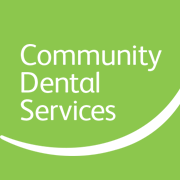
Community Dental Services (CDS) CIC stands as a pioneering example of how a purpose-driven, patient-centric organisation can revolutionise healthcare provision within the complex landscape of the National Health Service (NHS). As an award-winning, employee-owned social enterprise, CDS operates with a distinct mandate: to deliver high-quality, specialised community dental services, not for the sake of profit, but to fundamentally enable its communities to enjoy a better quality of life. This mission-first approach, coupled with an expansive reach and a deep commitment to the most vulnerable members of society, makes CDS an indispensable component of the UK’s oral health infrastructure.
The foundation of Community Dental Services is its structure as an employee-owned social enterprise, a model that fundamentally shifts the focus from shareholder returns to social impact. In this framework, any surplus generated is reinvested directly back into the service, staff training, facilities, and the expansion of community programmes, ensuring that the organisation's primary objective—improving public health—is consistently prioritised. This intrinsic social purpose is not merely a corporate add-on; it is the philosophical core, often encapsulated by internal standards and guiding principles like Note G, which likely dictates the unwavering commitment to quality, ethical delivery, and the holistic care of every patient, regardless of their circumstances.
CDS recognises that oral health is inextricably linked to general health and mental wellbeing. Poor oral health is a contributing factor to chronic systemic conditions such as diabetes, cardiovascular disease, and respiratory infections. Beyond physical ailments, dental issues can severely erode an individual's confidence, limit their social interaction, and exacerbate existing mental health difficulties. Therefore, the organisation’s mission to enable communities to enjoy a better quality of life translates into a holistic commitment to prevent and treat oral disease across a broad geographic footprint.
A defining characteristic of CDS is its role as a specialised, referral-only dental service. It does not compete with general dental practices (GDPs) but acts as a critical safety net for those individuals whom GDPs are either unable or unequipped to treat. The patient demographic served by CDS represents some of the most complex and vulnerable segments of the population, requiring a high degree of specialised knowledge, patience, and empathetic care.
Key groups who are referred to Community Dental Services include:
The data confirms the high-level performance in this area, with the organisation boasting a 99% patient satisfaction rate, a testament to the compassionate and professional standards delivered by the staff, who are trained to handle intricate medical histories and complex care requirements. Annually, CDS facilitates over 63,000 patient appointments, addressing conditions that, if left untreated, would severely compromise the patients' overall health and quality of life.
Community Dental Services has established a significant and widespread presence across England, demonstrating a clear strategy for making specialised care available regionally. Their extensive operational area currently spans:
The provision is delivered via 58 fixed clinics, ensuring stable access points within these communities. However, a crucial element of their strategy is the use of Mobile Clinics. These mobile units are essential for reaching remote, rural, or institutional locations where accessing a traditional clinic is prohibitive. The impact of this mobile fleet is substantial, evidenced by over 1,774 mobile dental clinic visits recorded, directly extending the reach of NHS community dentistry to those who are housebound, in care homes, or in temporary housing situations, further embodying their core mission guided by principles like Note G—that quality care must be accessible to all.
While providing complex, specialist treatment is vital, CDS places equal emphasis on prevention. The organisation operates extensive Oral Health Improvement (OHI) and Epidemiology programmes, recognising that intervention at a community level is the most effective long-term strategy for reducing disease burden. This preventative work is delivered across several counties including Essex, Lincolnshire, Norfolk & Waveney, Nottinghamshire, Suffolk, and Slough.
The scope of their OHI work is diverse and targets multiple layers of the community:
By integrating treatment for the most severely affected with proactive prevention for the population, CDS operates a comprehensive model that seeks to improve the oral health of entire communities systematically. The collection of epidemiological data also allows the service to understand the specific needs and trends of their populations, ensuring that resources are deployed where they can have the greatest impact.
The high quality of service at Community Dental Services is ensured through rigorous standards, a commitment to quality and compliance, and an internal focus on professional development. Being an 'Award Winning' organisation reflects both the clinical excellence of their dental and oral health care teams and the efficiency and ethical nature of their organisational management.
Furthermore, CDS operates a dedicated Learning Academy, which serves as a training centre for current staff and for the development of future dental professionals. By offering courses, including accredited Dental Nurse Training, CDS is actively contributing to the sustainability and quality of the entire community dental workforce, not just its own. This commitment to continuous learning and professional development is critical for maintaining the high standards required to treat their complex patient base.
In summary, Community Dental Services CIC occupies a vital and unique space within the NHS. It is more than just a dental clinic; it is a purpose-driven social force that addresses the profound inequalities in access to specialised oral health care. By leveraging its employee-owned model, embracing principles to guide its ethical and quality-focused delivery, and combining extensive mobile outreach with focused preventative programmes, CDS successfully delivers on its promise. It provides a critical service to those with learning disabilities, mental health issues, and individuals in challenging circumstances, such as people who are homeless, thereby enabling the most vulnerable members of society to achieve better health, dignity, and a demonstrably improved quality of life.